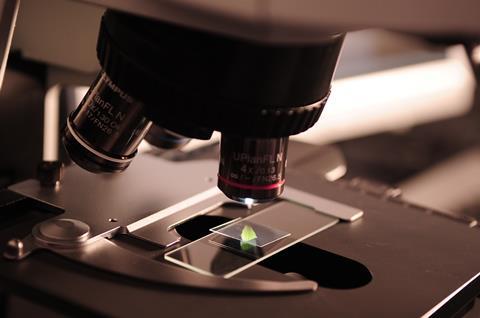Open letter signed by science and agri-food leaders urged new government to act quickly to make gene editing possible in England

Two UK scientists have welcomed what they called a “positive response” from Defra minister Daniel Zeichner MP on implementing the Genetic Technology (Precision Breeding) Act 2023 in England.
If implemented, the act will enable the development and marketing of gene-edited crops in England and is seen by many in the fresh produce industry as an important step towards modernising crop breeding.
In July, livestock scientist Professor Helen Sang and plant scientist Professor Tina Barsby wrote an open letter to Defra ministers calling for the new government to “act quickly and decisively” in bringing forward the secondary legislation needed to bring the act into force.
Without these implementation rules – which have already been drafted and were notified by Defra to the WTO in April 2024 – technologies such as gene editing will continue to be regulated under more restrictive GMO regulations.
Signed by more than 50 leading figures across the scientific and agri-food sectors, the open letter emphasises the importance of ensuring genetic scientists have access to the best technology currently available.
It also argues that gene editing is critical to building greater food system resilience, developing more sustainable farming systems, and boosting prospects for economic growth.
The letter reads: “The scientific evidence is overwhelming that the products of these technologies pose no greater risks than their conventionally bred counterparts. And yet they can greatly accelerate the development of more climate-resilient, higher-yielding crops, requiring fewer pesticide and fertiliser inputs, and with improved quality and nutrition.”
Zeichner responded: “Innovation is key in supporting our efforts to strengthen food security, enhance resilience and improve agricultural sustainability.”
He added: “We are now considering how to take forward the regulatory framework outlined in the act and will share our plans with key interested parties soon.”
Barsby described the minister’s response as an encouraging signal that the new government recognises the importance of these new technologies, but she called for the government to make its plans clear to researchers, innovators and prospective investors in the UK.
“Around the world, countries are moving rapidly to adopt more science-based regulations for gene editing technologies,” she said. “Thailand recently joined Canada, Australia, Japan, Brazil, Argentina and the USA in adopting regulations which treat precision bred products more like conventional products.
“New Zealand, which has historically taken a more cautious regulatory approach to genetic technologies, announced last month that it will also introduce new legislation to free up gene editing technologies.
“With our world-leading science base in genetic research, we cannot afford to be left behind in enabling British science to fulfil its promise of fighting climate change, contributing to food security and delivering nature recovery.”



